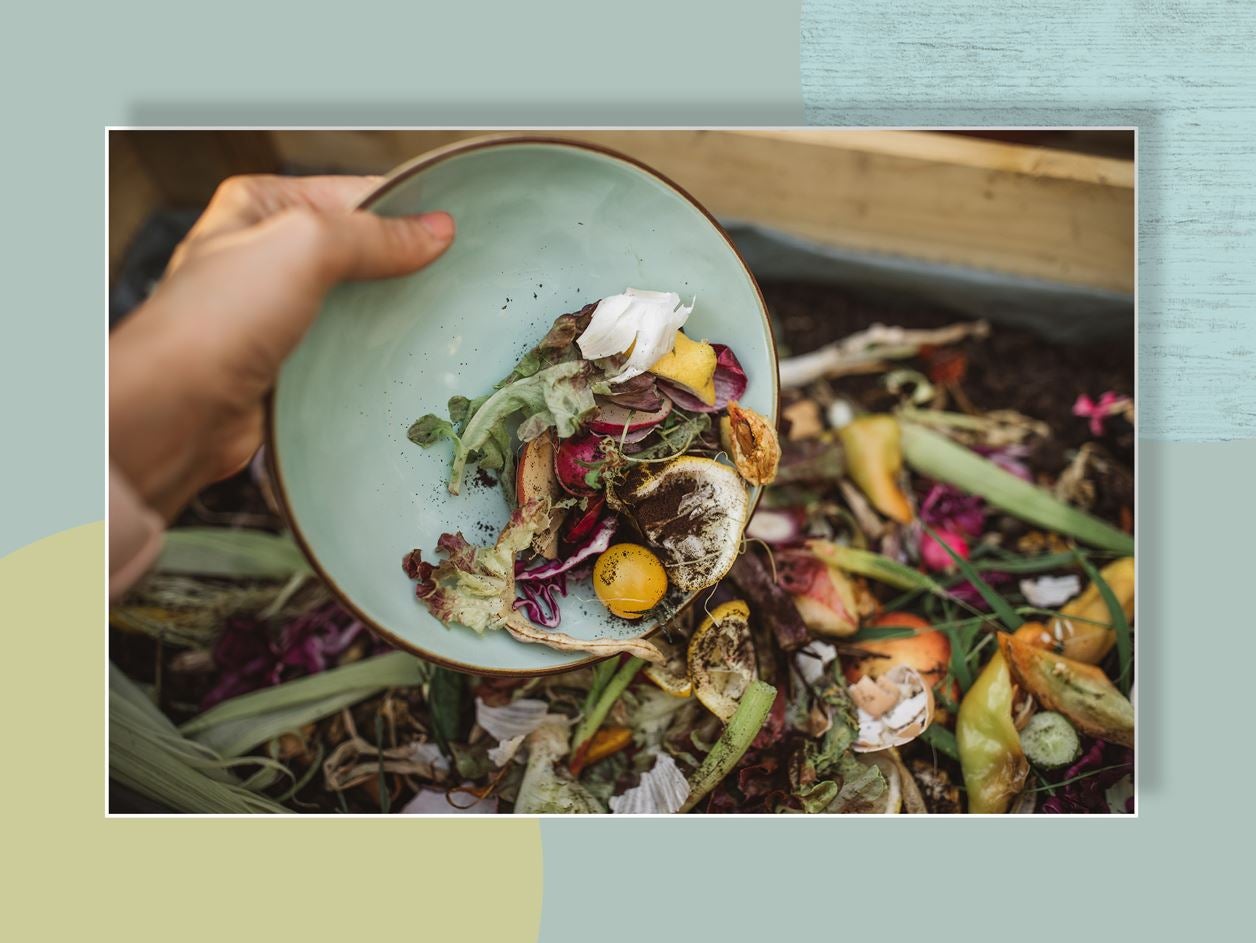Zero Waste Week: Chef tips to help you prevent food waste at home
From bread to salad, we’re all guilty of throwing food away. Emma Henderson finds some achievable ways of saving offcuts and leftovers from going to the bin


We all know we need to waste less, but like many things in life, it’s sometimes easier said than done.
In the UK alone, we throw away an estimated 9.5 millions tons of food every year. The Felix Project, a London-based food redistribution charity, estimates that only 2 tons of this comes directly from the food industry. The majority comes from households – a staggering and sober thought – while the remaning portion comes from manufacturers and the retail industry. The Waste and Resources Action Programme says this waste is equivalent to £19bn a year.
Within our homes, the foods most likely to go to waste include bread, milk, potatoes, cheese and apples, according to chef and campaigner Hugh Fearnely-Wiittingstall. Salad and bananas are other culprits that quickly go off almost without us noticing. The culmination of all of this results in an average UK family spending £470 a year on food that’s binned or not eaten.
Zero Waste Week, which took place 5-9 September, is an initiative designed to help prevent sending so much to landfill, and increase recycling and the circular economy. It’s not soley aimed at food, but it is, of course, a large part of it. Set up in 2008 by Rochelle Strauss, it takes place during the first week of September every year. It was born after the Strauss family were caught up in freak floods in 2004 in the north Cornish town of Boscastle, which served as a stark reminder of how damaging human-caused climate change can be. It inspired Strauss to set about making serious change.
When it comes to food, a lot of waste can be prevented with a litte bit of organsing, like planning meals, writing a shopping list (and sticking to it), making the most of your freezer and Tupperware. Don’t be totally guided by “use by dates”; instead use your own senses. Smell milk, touch vegetables and if they look and smell OK, they likely are. Although, do be more aware when it comes to things like meat.
Help to preserve food, and reduce single-use materials going to landfill by using beeswax wraps for vegetables, fruit, cheese or anything eles that needs covering. You can also preserve plenty of foods by pickling or fermented them. It’s an age-old method of prolonging the life of food to use during winter months that’s found a new following in the past few years.
Awareness weeks come and go, but it’s still important to carry on the actions beyond just this week. Here’s some achievable tips from chefs to follow at home.

Sarah Turner, head chef of Social Pantry, London
“Who wastes wine, we hear you ask. Well, quite a lot of people. UK households pour 42,000 tons of wine down the sink every year, at a staggering cost of £290m, when there really is no need! Prevent excessive oxidisation and preserve your bottle’s lifespan by closing a bottle of wine after pouring individual glasses and reseal with the cork it came with or invest in a wine preservation system. Leftover wine can be frozen to make wine ice cubes that can be used in cooking in the future. This allows you to save even the smallest quantities of good wine for special occasion cooking, and spares you opening a bottle for cooking in the future and ending up in the same situation.”

Judy Joo, founder of Seoul Bird, London
“Make a salad dressing in an empty jam, honey or mustard jar that you cannot fully scrape out. Just add oil, vinegar, shallots (or anything of your choice), close the lid tightly and shake away. All of the leftover bits of honey or mustard, etc, will add a nice flavour to your dressing.
“You can also save the foil paper from butter to grease cake tins, grease a frying pan, butter some toast, or even use to cover an item cooking in a pan instead of a lid, not only does it help trap heat and is faster cooking, but also imparts a nice buttery flavour.”

Lewis Glavill, head chef of The Field Kitchen, Riverford, Devon
“With the leftover vegetable peelings in our restaurant here at Riverford, we turn them into vegetable stock cubes. To do it, we blend the peelings with some salt (20 per cent of the weight of the veg) into a pulp. Then, to make sure it doesn’t taste raw, we cook them in a dry pan. Next we need to dehydrate the mix. To do this, spread it out on a tray in the oven, put it on a super low heat with the oven door open. Once its dry, break it up and blend it again into a fine powder. When you want to use it, pop a teaspoon in boiling water to use.”

Chantelle Nicholson, chef and owner of Apricity, London
“Get creative! That bag of limp salad leaves can easily be turned into a pesto – just add some nuts, a little garlic, salt and oil, and cheese if you fancy. Just blitz it in your blender. If your milk is about to sour, make some ricotta. Bring 500ml to the boil then add 2 tablespoons of white vinegar. Turn off the heat and let sit for two minutes. Strain and voila! Lastly, if you’ve got soft potatoes, pop them in the oven when you’re cooking something else, then chop them up, brown off a few sliced onions, add the potatoes, a little milk and stock. Bubble for five minutes then blend together and you’ve got baked potato soup – the ultimate comfort food, which is perfect with a dollop of your salad leaf pesto.”

Aidan Monks and Catherine Connor, co-owners of Lovingly Artisan Bakery, Kendal and Altrincham
“We always make crackers with our leftover ends of sourdough loaves. Slice them as thinly as you can – about 5mm – drizzle with olive oil, sea salt and a twist of pepper, place in the oven at 180C for about three minutes until golden (turn halfway through baking). Cool and keep in a sealed box for eating with pâté, dipping into soup or scooping up melted Camembert. They’ll keep for four days – if you can leave them alone that long!”

Aktar Islam, Chef Patron of Opheem, Birmingham
“Fresh vegetables are usually the first thing to go off in my fridge. It sounds simple like a simple tip but I freeze pretty much everything. Simply blanch your veg briefly in boiling water and then quickly submerge the vegetables in ice water to prevent them from cooking. Store in airtight containers and you’re good to go. Blanching beforehand prevents loss of flavour, colour and texture. My favourite way to use up various frozen veg is in a biryani – easy, nutritious, and filling.”

“Instead of throwing away your carrot and parsnip peels, save them and use for making crisps, simply deep fry over 160C temp. I like to sprinkle a little chaat masala and pepper or you can add them to stir-fries and soup stocks
“Cauliflower and broccoli stems can both be used in a stir-fry or served as a side dish. It’s important to trim and peel the stems carefully. Dice them and heat in a pan with oil, add cumin seeds, turmeric powder, salt and cook over low heat. Coriander stems contain a lot of flavour, I always add a few to marinades.”
Join our commenting forum
Join thought-provoking conversations, follow other Independent readers and see their replies
Comments
Bookmark popover
Removed from bookmarks